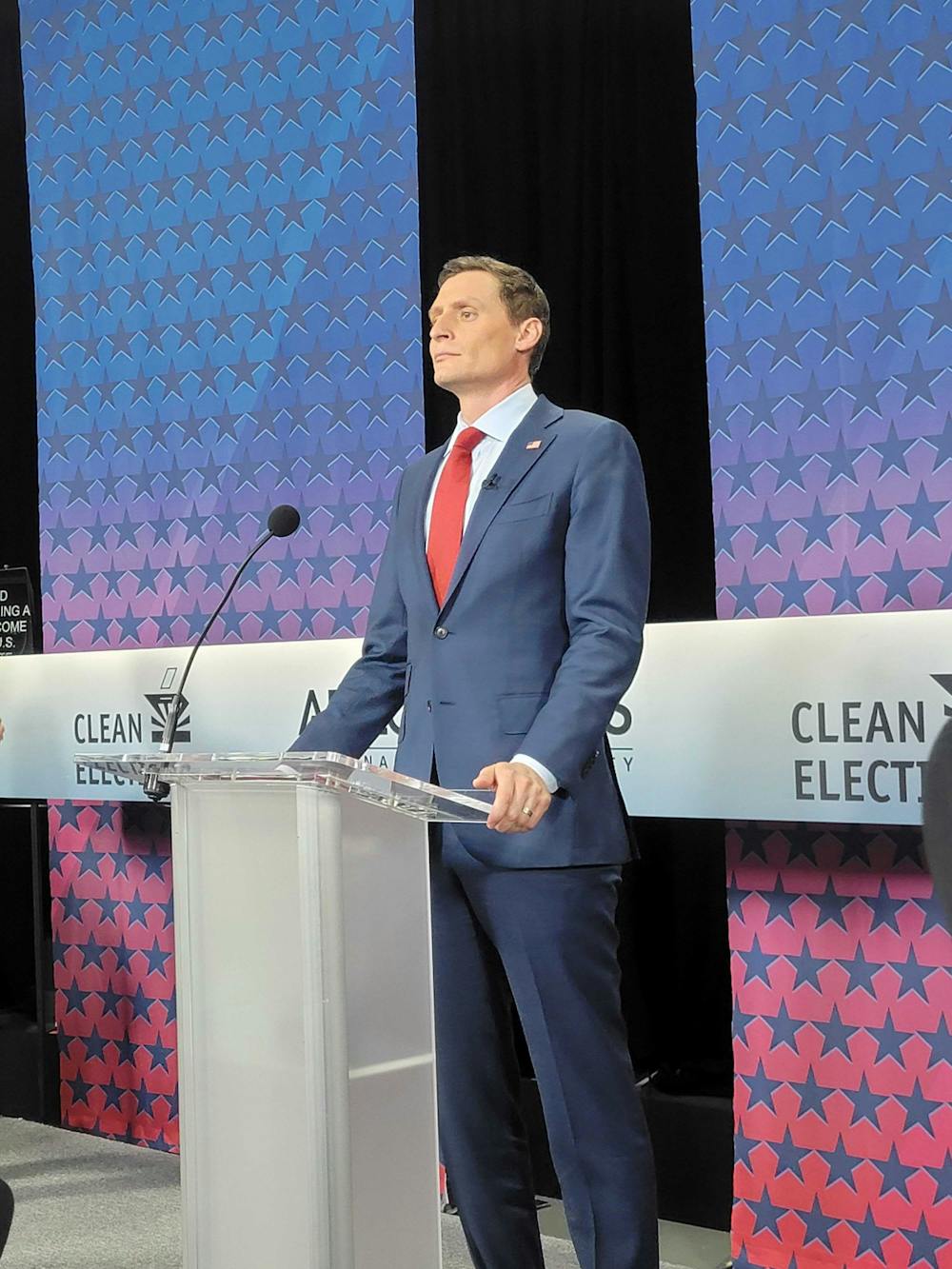In terms of rhetorical strategy, Blake Masters emerged victorious from the bloodbath that was the Arizona Senate Debate October 6.
Masters, the 36-year-old Republican candidate vying for Mark Kelly’s Senate seat, came in with a fiery attitude toward his Democratic opponent. Unlike Kelly, who rehashed arguments that seemed rehearsed and formulaic, Masters constructed rebuttals and new lines of debate seemingly spontaneously.
He framed his arguments in a way that seamlessly targeted weak points in Kelly’s reasoning while simultaneously extending his own position.
For instance, when the two candidates discussed immigration, Masters quickly set the primary focus on Kelly’s refusal to send 18,000 patrol agents to secure the U.S.-Mexico border. This move actively undermined Kelly’s previous pro-border security claims. Masters then bolstered his own view by calling out Kelly’s approval of the state hiring 87,000 new IRS agents, which Masters emotionally framed as a scheme allowing drug dealers to enter the state.
Because Masters succeeded in emphasizing the danger of fentanyl-smuggling, and more specifically how it could lead to the death of children, he painted Kelly’s refusal to hire more border agents as his refusal to protect Arizona families. It was a clever ploy to contradict Kelly’s stance on immigration.
Masters’ strategy was just as methodical when it came to defending himself.
During the segment of the debate that addressed abortion, moderator Ted Simons naturally pressed Masters about his stance, given that Masters’ campaign website scrubbed and flip-flopped on the subject in recent weeks.
Instead of being noticeably evasive, Masters proudly identified himself as pro-life, but made sure to emphasize its reservations. He proclaimed that he did not support abortion after 15 weeks of pregnancy, allying himself with Ducey’s ban. Masters labeled the plan as “common sense” regulation.
Further, Masters denounced Kelly as an “abortion radical” who would support extremely late-term abortions with no restrictions at all. This rhetorical choice served to unify Masters with the Arizona audience while alienating Kelly from them. Masters managed to transfer the abortion scrutiny from himself to Kelly. In some lights, it made Masters look like the more reasonable candidate.
This year’s Arizona Senate election is crucial. Whoever wins Mark Kelly’s seat will determine which party controls the U.S. Senate.
Although both Kelly and Masters attempted to appeal to an increasingly moderate Arizona constituency, it was Masters who succeeded. He employed an efficient rhetorical strategy that likely elevated his chances of taking office in November.

